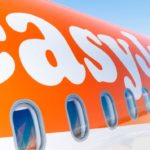Research released by Inmarsat has found that long term flying habits are set to change drastically, with eight in ten airline passengers (83 per cent) not expecting to return to their previous travel routines once the COVID-19 pandemic is over.
The ‘Passenger Confidence Tracker’ commissioned by global telecommunications provider Inmarsat is the largest global survey of air passengers since the pandemic began. The survey reflects the views and attitudes of 9,500 respondents from 12 countries across the globe about the future of flying.
Other key findings include:
- Only a third (34 per cent) have taken a commercial flight since the pandemic began
- 4 in 10 (41 per cent) expect to travel less by any means and a third (31 per cent) plan to fly lessAlmost half (47 per cent) of passengers globally expect to feel ready to fly within the next six months. This sentiment is even higher among Asian passengers, with 58 per cent in India and 55 per cent in South Korea planning to travel less in the future.
- The survey also uncovered cultural variations to passenger confidence in flying, from the reluctance of South Korean passengers in getting back on a plane until a vaccine is found, to the confidence of Hungarians and Britons to get back in the air immediately.
- While the majority of passengers (60 per cent) feel satisfied with the aviation industry’s response to the challenges of COVID-19, the survey reveals areas of opportunity for airlines to encourage passengers back to the skies.
Digitisation: “minimising critical touchpoints in the passenger journey”
Philip Balaam, President of Inmarsat Aviation, said: “With safety and reputation becoming even more important to today’s flyers, there is a clear need for airlines to differentiate themselves in order to encourage passengers back onto their flights. Digitalisation lies at the heart of both; minimising critical touchpoints in the passenger journey to improve confidence, all the while keeping passengers connected and entertained.”
The study reveals significant variance across the world when it comes to passenger confidence about flying in light of the pandemic. Hungarian and British fliers are most confident, with 26 per cent and 16 per cent respectively saying they would get on a flight today. Asian passengers are less so with over a third (35 per cent) of South Koreans expect not to fly again until COVID-19 disappears.
Travel confidence broadly correlates to levels of public concern about COVID-19. For example, South Koreans and Singaporeans are twice as likely to describe their behaviour in relation to the virus as ‘highly cautious’ than Britons.
Greater fear of catching virus at gyms or on public transport
Passengers are currently more fearful of catching the virus abroad poses a greater health risk in other environments, such as the gym and public transport than on board a plane. Recent IATA research supports this, suggesting people are more likely to be struck by lightning than catch COVID-19 on a plane.
While passengers largely feel confident at passport control, security and communicating with cabin crew, they are less comfortable visiting the toilet in flight, and being in close proximity with others. The study indicates that solutions that minimise touchpoints and reduce interactions would go furthest in addressing pain points – such as contactless payments inflight (83 per cent) and staggered security queues (84 per cent).
Consistent safety measures preferred to mandatory quarantine
When it comes to ensuring personal safety, passengers have shown a desire for a consistent set of measures to make the journey safer including mandatory face coverings, or a 48-hour test before travel, the results show that they have disregarded the automatic 14-day quarantine.
Almost half of passengers (44 per cent) say that reputation is now a more significant factor when choosing an airline than it was pre-pandemic. It has therefore never been more vital for airlines to differentiate and gain a competitive edge.
The research highlights that improving inflight experience is one way to achieve this. Measures such as extra legroom (43 per cent) to free baggage (39 per cent), value added services are becoming increasingly important to passengers returning to the skies.
Cabin connectivity favoured by passengers
Digital solutions are fast-becoming essential to an enjoyable inflight experience, with almost four in ten (39 per cent) agreeing that onboard Wi-Fi matters more today than ever before. This is most significant for Indian and Brazilian passengers. Destination status alerts, real time luggage tracking and pre-clearing immigration on the plane – all enabled by cabin connectivity – are among the top new aspects of the journey passengers want to keep post-pandemic.

